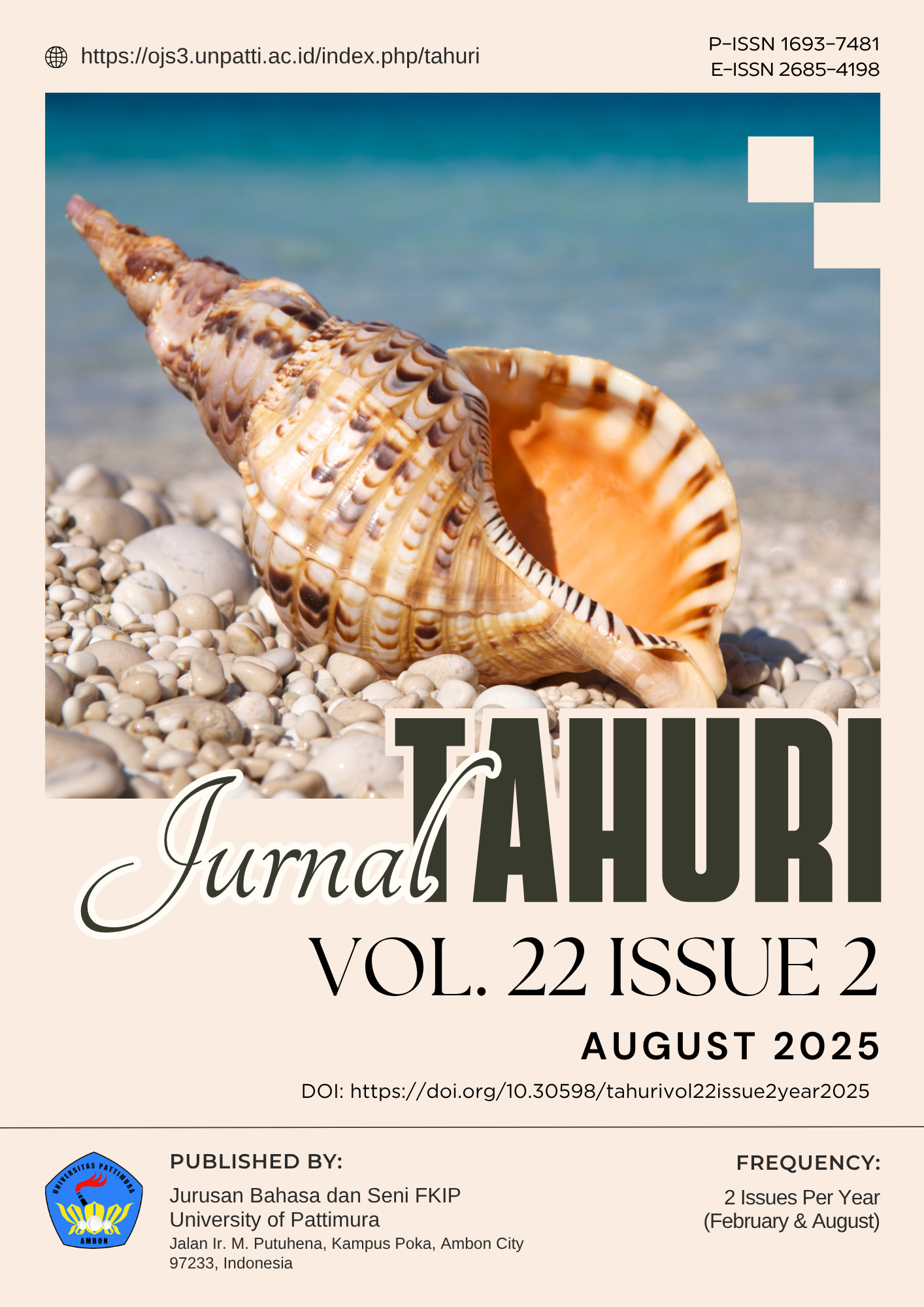Revisiting Indonesia’s English Curriculum: Policy Gaps and Classroom Realities
Abstract
This study examines the gap between Indonesia’s national English curriculum policies and actual classroom practices in two distinct secondary school contexts: an urban vocational school and a semi-urban general school. While the Merdeka Curriculum emphasizes communicative competence and active learning approaches, classroom realities reveal a clear misalignment between policy intentions and pedagogical practices. Employing a qualitative descriptive–interpretative approach through a multisite case study design, the research was conducted at SMKN 7 Surabaya (urban, vocational) and SMAN 5 Tegal (semi-urban, general). Data were collected through policy document analysis, classroom observations, and in-depth interviews with six English teachers and thirty students. Thematic and contextual comparative analyses were applied to identify patterns of policy–practice gaps and their underlying factors. Findings indicate that teachers at SMKN 7 Surabaya tend to adapt the curriculum to vocational needs but face constraints of time and workplace competency demands, resulting in suboptimal communicative teaching. In contrast, teachers at SMAN 5 Tegal face limited resources and training, leading to lecture-based and exam-oriented instruction. Across both sites, teachers demonstrate limited understanding of the Merdeka Curriculum principles, while exam orientation and institutional structures hinder communicative implementation. The study’s novelty lies in its cross-contextual analysis and policy–practice interface approach. It contributes to language education policy studies in developing contexts and recommends context-sensitive teacher training, flexible policies, and more responsive curriculum implementation mechanisms.
Downloads
Copyright (c) 2025 Alif Alfian Rizky, Fattah Amal

This work is licensed under a Creative Commons Attribution 4.0 International License.




